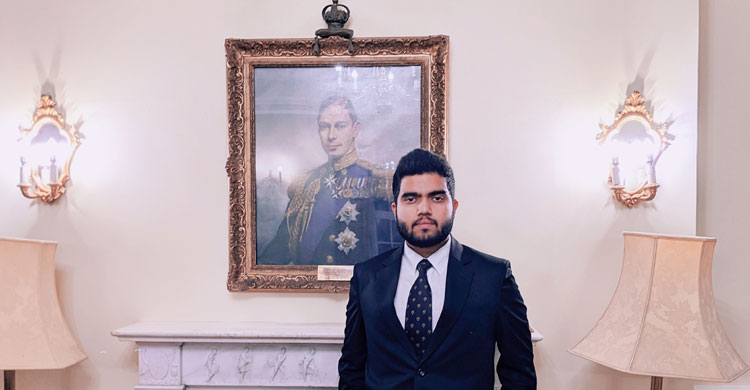Stop accusing lawyers for defending bad people!

Aiman R. Khan:
The Cab Rank Rule refers to one of the guiding principles for Barristers practising in England and Wales. It grants access to justice for all. It deeply embeds in a lawyer’s professional etiquette in ensuring that every member of the society has the right to be represented, regardless of their offence. The rule suggests that a lawyer must look beyond the nature and character of a crime, however serious may it be, to represent an accused in the court of law. That means even a murderer,or a potential rapist has the right to be legally represented, even if the whole country is against them. With that principle in mind, let us find out how far is it practically possible for lawyers in Bangladesh to take up cases of infamously popular people in the country.
Law Practice in Bangladesh comes with new challenges every day. As the pile of cases in the subordinate courts increases, only a few lawyers,out of the thousands, remain without work. The cases that come to chambers are mostly taken up depending on its gravity of merit while independent lawyers rely on their networks. There are many cases which is taken up by the media but only a few of them make it to the headlines of newspapers. Electronic media is flooded with the news while social media is surged with protests. Cases like these are sensitive, as public sentiments are largely partisan towards the victim. Media trial starts even before the cases is taken up by the court.
The entire nation predisposes the accused, based on the evidence portrayed, leaving little or no room for them to speak for themselves. In such heat of the moment, it really takes the nerve for a lawyer to stand up for them in their defence. Besides facing questions like‘how could you defend somebody when you know they are guilty?’, the lawyer may even risk getting beaten up by a mob. The obvious mindset would be that moral superiority overpowers every other reason. But all of it can be explained by one presumption, i.e, ‘Innocent until proven guilty’.Article 14 (Section 2) of the International Covenant on Civil and Political Rights (1966) talks about this standard which Bangladesh is legally bound to follow being a party to this covenant. Moreover, Article 27 of the Constitution of Bangladesh states “All citizens are equal before law and are entitled to equal protection of law.”Therefore,there must be no discrimination regarding who deserves protection of law and who doesn’t.
But in practice, media trials and common perspective diminish the possibility of anything like that.
In England and Wales, a Barrister is bound by the Code of Conduct which makes him/her accept the case of a person, however worse he may find them to be, irrespective of his/her feelings about the offence that person is charged with. In the United States, the sixth amendment of the constitution provides that “In all criminal prosecutions, the accused shall enjoy the right…to have the Assistance of Counsel for his defence.” This means that a defendant has a constitutional right to be represented by an attorney during trial. Even in the landmark case of United States v. Gonzalez-Lopez, it was held that denying this right without a good cause would result in reversal of the defendant’s conviction!
What we can take from the Cab Rank Rule of the UK is that a lawyer has a duty in upholding rule of law. To give effect to it, he/she, bound by their code of conduct, should ensure every person gets access to justice without the intervention of their individual thoughts. As the Constitution of Bangladesh talks about Equality before the law, every citizen of the country deserves a right of legal representation. We must develop a positive outlook towards lawyers because they are also a part of the community all of us belong to, devoting their lives towards to the relentless pursuit of peace in everyone’s lives.
The writer is an Advocate at Dhaka judge court & accredited mediator
N.B: Opinions published in this section are the author’s own. The opinions expressed may not be consistent with the editorial policy of lawyersclubbangladesh.com

